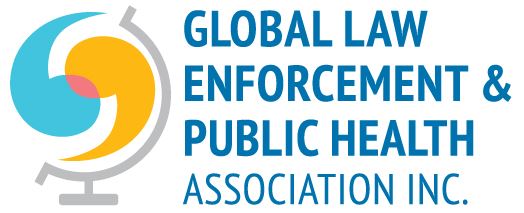THE ISSUES
The context
 Law enforcement, especially through the activities of police forces, has a crucial but largely unacknowledged role in the protection and promotion of the public health. While police are key partners in many specific public health programs, their identity as an important part of the public health endeavour is rarely recognised. This means that there is a generally an inadequate approach to research and investigation of ways in which law enforcement, especially police, can be most effectively engaged and be most effective in carrying out their public health role.
Law enforcement, especially through the activities of police forces, has a crucial but largely unacknowledged role in the protection and promotion of the public health. While police are key partners in many specific public health programs, their identity as an important part of the public health endeavour is rarely recognised. This means that there is a generally an inadequate approach to research and investigation of ways in which law enforcement, especially police, can be most effectively engaged and be most effective in carrying out their public health role.
Public health is an active partner in crime prevention as well. For example, the provision of mental health and alcohol and other drugs treatment, and primary and secondary prevention interventions are major components of a multi-sectoral approach to ameliorating the impact of complex social issues. Police do not necessarily identify as public health players, nor do they generally identify the public health partnership as important to their objectives. Public health far too infrequently studies the partnership and learns how to improve it.
The intersection of law enforcement and public health
 The intersection of law enforcement (especially police) and public health is diverse, covering the widest range of public health issues; longstanding, with an evolving history of collaborations; critically important, with many issues requiring the inter-sectoral approach; and inadequately recognised, understood and resourced.
The intersection of law enforcement (especially police) and public health is diverse, covering the widest range of public health issues; longstanding, with an evolving history of collaborations; critically important, with many issues requiring the inter-sectoral approach; and inadequately recognised, understood and resourced.
There are multiple points where law enforcement intersects with public health, and where local government often plays a key enabling role. These intersections include:
- Mental health, including dealing with people in crisis and drug and alcohol affected persons, especially those with dual diagnosis
- Violence, including family violence, gender-based violence, the Unsafe City and other violence prevention
- Infectious disease, including HIV, other communicable diseases and epidemic control
- Road trauma
- Emergency and disaster management
- Alcohol regulation and public order, and Night Time Economies
- Illicit drugs and harm reduction
- Young People’s health
- Indigenous health
- Health and security in the Developing World
- Post-conflict opportunities for police/law enforcement/military reform.
Read more about the Issues
- Policing and Society: An International Journal of Research and Policy
http://www.tandfonline.com/toc/gpas20/27/3?nav=tocList
Includes:
Researching law enforcement and public health
Maurice Punch and Steve James
http://www.tandfonline.com/doi/full/10.1080/10439463.2016.1205066
and
Law enforcement and public health as an emerging field
Auke van Dijk and Nick Crofts
http://www.tandfonline.com/doi/full/10.1080/10439463.2016.1219735
- Journal of Criminological Research, Policy and Practice (to be published in 2017)
http://www.emeraldgrouppublishing.com/jcrpp.htm
The special issue will be published in 2017, with six papers from LEPH2016 plus an editorial by the Conference Director, Professor Nick Crofts
http://www.emeraldgrouppublishing.com/products/journals/call_for_papers.htm?id=6395
- Journal of Policing and Society
Policing and public health: Not quite the right analogy
Evan Anderson and Scott Burris
https://papers.ssrn.com/sol3/papers.cfm?abstract_id=2835461

